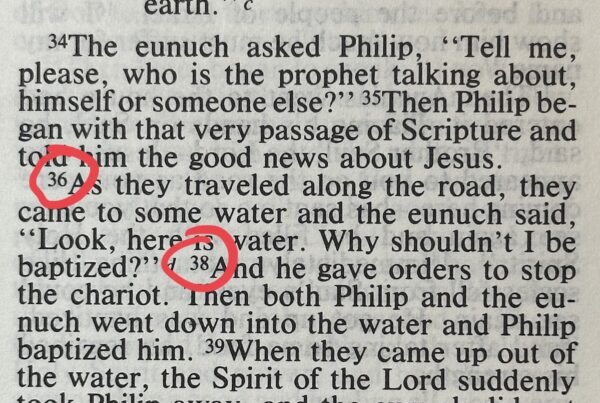In Genesis 1:1 the Bible says “in the beginning God created the heavens and the earth.” If we talk about only one heaven, why is it plural?
—————–
Thank you very much for your question. The noun translated “heavens” in Genesis 1:1 appears 421 times in the Hebrew Bible (Old Testament). This noun appears in the “dual,” a term used by Hebrew grammarians to refer to realities that are routinely thought of in pairs. For example, the Hebrew words for eyes, ears, and feet are all in the dual. I have a pair of each, as do you. So why might the word for “heavens” be in the dual?
A pair of ideas come together with the word “heavens.” It refers both to the physical heavens and to the abode of God. (1) The physical heavens contain all that is above the earth—our atmosphere and outer space. It includes clouds, rain, and thunder as well as the sun, moon, and stars. (2) But the term “heavens” also refers to the abode of God. For example, Solomon prays to God in 1 Kings 8:30: “And listen to the plea of your servant and of your people Israel, when they pray toward this place [the temple]. And listen in heaven your dwelling place, and when you hear, forgive” (ESV, emphasis added). Earlier, Moses offered a similar prayer: “Look down from your holy habitation, from heaven, and bless your people Israel …” (Deut. 26:15a, ESV, emphasis added).
I note, however, that not every English translation uses the plural “heavens” in Genesis 1:1. For example, the Jewish Publication Society translates the verse with “heaven and earth.” Even so, keep in mind that the Hebrew word can refer to everything that is above the earth as well as to the abode of God.
-Dr. Mark Mangano, Professor of Old Testament at Lincoln Christian University.





